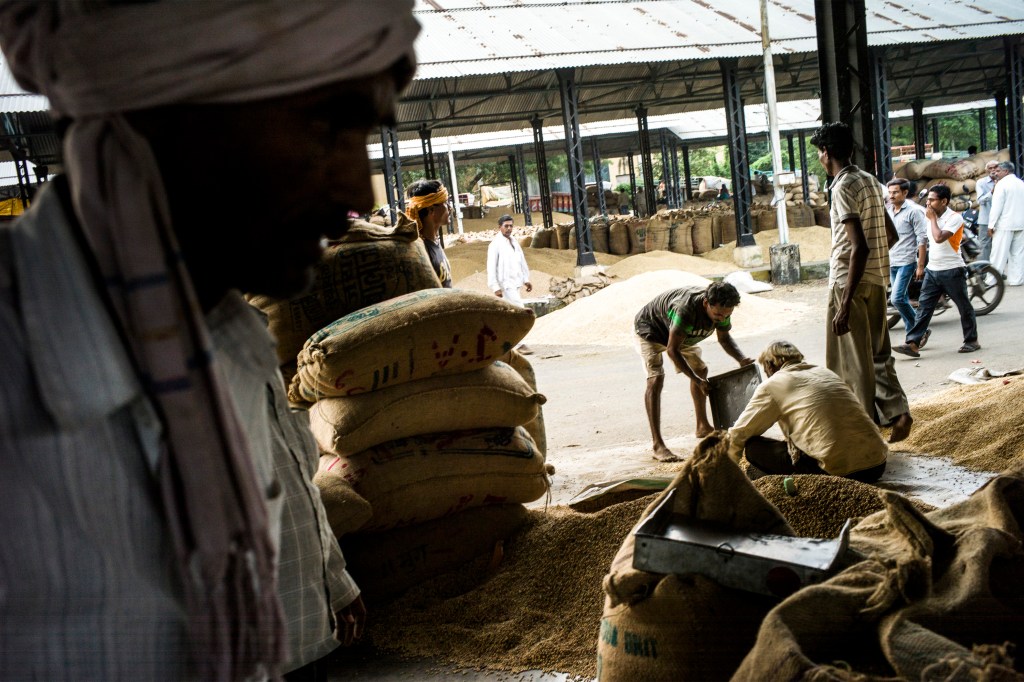Only about a third of the yields Indian farmers produce reaches the big markets. Those whose produce makes it there today are able to leverage post-harvest services. Everyone else is missing out.
A Noida-based startup is working with all the stakeholders — farmers, food processors, traders and financial institutions — to bridge this post-harvest services gap — and it just secured new funds to continue its journey.
Seven-year-old Arya said on Tuesday it has raised $21 million in its Series B financing round. The round was led by Quona Capital, a venture firm that focuses on fintech in emerging markets. Existing investors LGT Lightstone Aspada and Omnivore also participated in the round, while multiple unnamed lenders are providing additional debt financing to the startup, Arya said.
Nearly all post-harvest interventions that exist in India today are focused largely toward major agriculture centres such as Kota in the northern Indian state of Rajasthan and Azadpur Mandi in capital New Delhi, explained Prasanna Rao, co-founder and chief executive of Arya, in an interview with TechCrunch.
This uneven concentration has deprived millions of farmers in the country of reasonable options to efficiently store and sell their produce and of financing options to maintain their cash flow, he said.
“Our belief is that we should cater to the two-thirds of the market that are currently underserved. The Kota mandi (market), for instance, has 35 bank branches in a kilometre of radius. But if you travel 70 to 80 kilometres away from Kota, this really declines,” said Rao, who previously worked at a bank.
Arya is solving all the aforementioned challenges: It operates a network of more than 1,500 warehouses in 20 Indian states where it stores over $1 billion worth of commodities. This network allows farmers to store their produce at a centre that is much nearer to their farms, avoiding any spillage and exorbitant real estate costs of the big markets. On the credit side, Arya has disbursed over $36.5 million to farmers and its banking partners have disbursed more than $95 million.
“Arya is addressing a vastly underserved market of farmers in India, half of whom previously had little access to post-harvest finance,” said Ganesh Rengaswamy, co-founder and partner at Quona Capital, in a statement. “We believe Arya’s unique approach, providing a full-service digital platform with embedded finance and differentiated efficiencies for small farmholders, will drive the future of farming in India.”
The startup’s offerings have proven even more useful during the coronavirus pandemic, which saw New Delhi enforce one of the world’s strictest lockdowns earlier this year. The lockdown broke the supply chain network, and prices of agricultural commodities dropped by over 20%.
To navigate this, Arya connected farmer produce organizers, or FPOs, with buyers through its own digital marketplace a2zgodaam.com. “The need for immediate liquidity saw demand increase for credit against these warehouse receipts. Arya’s credit portfolio saw a 3x jump year-on-year,” wrote Prashanth Prakash, a founding partner at Accel in India, and Mark Kahn, managing partner at Omnivore in an industry report last week.
Rao said Arya will deploy the fresh capital to scale its fintech platform in a “big way” as the startup broadens its network of warehouses across the country. Additionally, the startup plans to fuel the growth of a2zgodaam.com, which also aggregates unorganized warehouses, and supercharge them with their own set of financiers and insurers and ways to allow farmers to sell directly through these warehouses if they need.
Amazon, Flipkart, Ola and Uber begin to resume their services in India







